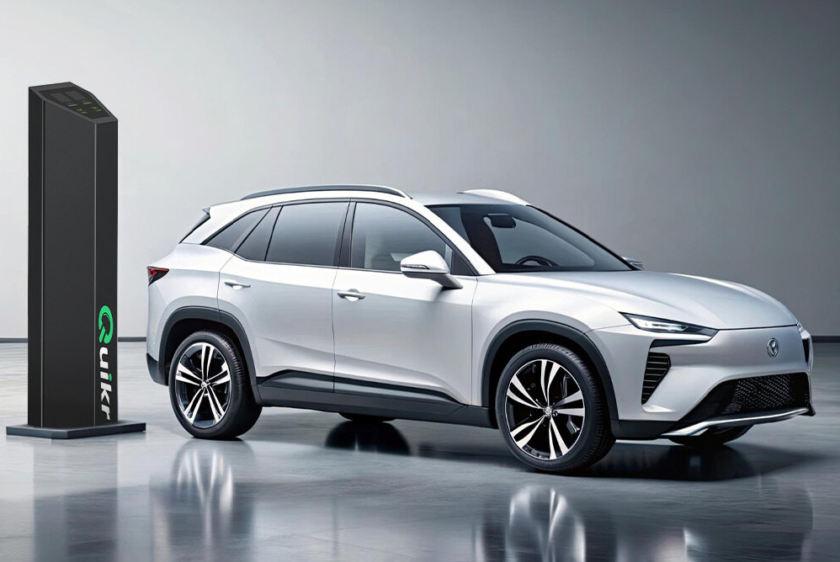In 2025, wireless EV charging is no longer a futuristic concept—it’s a reality transforming the electric vehicle (EV) industry.
Unlike traditional plug-in chargers, wireless EV charging uses electromagnetic induction to transfer power seamlessly from a charging pad to an EV’s battery.
This technology eliminates the need for cables, making charging more convenient, efficient, and user-friendly. As governments and automakers invest heavily in wireless EV charging infrastructure, this innovation is set to redefine how we power our vehicles.
How Does Wireless EV Charging Work?
Wireless EV charging operates through electromagnetic induction, where a charging pad (ground-based) transmits energy to a receiver pad installed in the EV.
Key Components:
- Transmitter Coil (Ground Pad): Generates an electromagnetic field.
- Receiver Coil (Vehicle Pad): Converts the field back into electric current.
- Power Inverter: Manages energy transfer efficiency.
This process ensures safe, efficient, and automatic charging without physical connections.
Top Wireless EV Charging Companies in 2025
Several companies are leading the wireless EV charging revolution:
- WiTricity: Pioneers in high-efficiency wireless power transfer.
- Tesla: Exploring wireless EV charging for future models.
- BMW: Offers wireless charging pads for home use.
- Qualcomm Halo: Focuses on dynamic charging solutions.
- Plugless Power (by Evatran): Provides aftermarket wireless chargers.
These companies are driving innovation, making wireless EV charging more accessible.
Wireless EV Charging at Home: Is It Worth It?
Installing a wireless EV charging pad at home offers convenience:
✅ No cables – Just park and charge.
✅ Automated charging – No manual plugging.
✅ Future-proof investment – Aligns with smart home tech.
Cost Considerations:
- Home wireless EV chargers range from 1,500 to 4,000, including installation.
- Long-term savings on maintenance vs. wired chargers.
Wireless EV Charging Pad: How It Functions
A wireless EV charging pad consists of:
- Copper coils for energy transfer.
- Alignment assistance (via sensors or apps).
- Safety features (overheat/overcharge protection).
Efficiency: Modern pads achieve 90-94% efficiency, rivaling wired chargers.
Wireless EV Charging Roads: The Future of Dynamic Charging
Wireless EV charging roads embed charging coils beneath asphalt, allowing EVs to charge while driving.
- Pilot projects in Germany, Sweden, and the U.S.
Benefits:
- Eliminates range anxiety.
- Reduces dependency on charging stations.
Wireless EV Charging Efficiency: How Effective Is It?
- Energy Loss: Only 6-10% compared to wired charging.
- Alignment matters: Proper parking ensures optimal efficiency.
- Future improvements: Higher power transfer rates (up to 300 kW).
Tesla and Wireless EV Charging: What’s the Latest?
While Tesla hasn’t officially launched wireless EV charging, third-party solutions like WiTricity offer retrofits. Rumors suggest Tesla may integrate wireless charging in Cybertruck or Model 3 refresh.
Wireless EV Charger Cost: Is It Affordable?
| Type | Cost Range (2025) |
|---|---|
| Home Wireless Charger | 1,500−4,000 |
| Public Wireless Charger | 5,000−15,000 |
| Dynamic Road Charging | 1M−3M per mile |
Prices are expected to drop as adoption increases.
WiTricity Wireless Charging: A Leader in the Industry
WiTricity is a key player in wireless EV charging, offering:
- 11 kW home chargers.
- Partnerships with major automakers.
- High efficiency (93%+).
Government Trials & Infrastructure Development
Countries like the U.S., U.K., and China are testing wireless EV charging in:
- Public parking lots.
- Taxi stands.
- Highways (dynamic charging).
Subsidies and incentives are accelerating adoption.
Charging EVs on the Move: Dynamic Wireless Charging
Dynamic wireless charging enables EVs to charge while driving via embedded road coils.
- Trials in Detroit and Sweden.
- Potential to eliminate charging stops.
Pros and Cons of Owning an EV in 2025
Pros:
✔ Lower fuel costs.
✔ Reduced emissions.
✔ Wireless charging convenience.
Cons:
❌ Higher upfront costs.
❌ Limited wireless charging infrastructure in some areas.
FAQs About Wireless EV Charging
Can Electric Cars Be Charged Wirelessly?
Yes, using wireless EV charging pads.
Do Wireless EV Chargers Work in All Cars?
Most EVs can be retrofitted with a receiver.
Do Wireless Chargers Damage the Battery?
No, they are designed for safe, efficient charging.
Is Wireless Charging Slower Than Wired?
Modern systems match wired speeds (up to 22 kW).
Can You Wirelessly Charge a Tesla?
Not natively, but aftermarket solutions exist.
Conclusion: The Road Ahead for Wireless EV Charging
Wireless EV charging is set to dominate the EV landscape by 2025, offering unmatched convenience, efficiency, and scalability.
With advancements in dynamic charging roads, home solutions, and government support, the future of EVs is truly wireless.
Ready to embrace wireless EV charging? Contact Us Today for the latest in EV charging technology and expert installation services!
🚗 Charge Smarter, Drive Further – Go Wireless in 2025! 🚗





